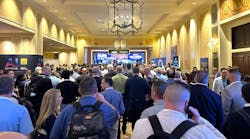The Currency and Foreign Transactions Reporting Act
http://www.fincen.gov/statutes_regs/bsa/
Otherwise known as the Bank Secrecy Act (BSA) or Anti-Money Laundering Act, this law passed in 1970 and amended by the Patriot Act requires financial institutions — including casinos with more than $1 million in gaming revenue — to assist government agencies in detecting and preventing money laundering. It requires financial institutions to keep records of cash purchases of negotiable instruments, to file reports of cash transactions exceeding $10,000 (daily aggregate amount), and to report suspicious activity that might signify money laundering, tax evasion or other criminal activities.
U.S. Code Section 1983 http://codes.lp.findlaw.com/uscode/42/21/I/1983
This section of federal laws allows individuals to take civil action against state entities who deprive them of their constitutional rights. There is precedent for casinos to be held liable under Section 1983 for their security officers’ actions when investigating or detaining patrons. If the court determines that a casino employee’s actions can be “fairly attributable to the state” through the use of three tests, the casino may be liable to pay compensatory and punitive damages as well as attorneys’ fees.
Maritime Transportation Security Act of 2002 (MTSA)
http://www.uscg.mil/hq/g-m/mp/mtsa.shtml
This 2002 law requires the U.S. Coast Guard to regulate security at ports, vessels and facilities. Governed parties must complete security assessments, develop security plans, and implement security measures and procedures. Coast Guard regulations governing vessel and facility security are applicable to many riverboat casino operations.
New Jersey: Casino Control Act http://www.state.nj.us/casinos/actreg/
Transfers regulatory power over the casinos from the Casino Control Commission to the Division of Gaming Enforcement and eliminates many regulations. Among them, it abolished the state requirement for gaming inspectors to be present on the casino floor on a 24-hour basis. The legislation also repealed the state’s minimum staffing levels for casino security officers, surveillance personnel and table games supervisors such as pit bosses.
Missouri Gaming Commission: Minimum Internal Control Standards
http://www.mgc.dps.mo.gov/MICS/mics.html
Lays out minimum standards for security at Missouri gaming establishments, addressing access control, reporting, public safety and order, and protection of assets.
Nevada Gaming Commission: Minimum Internal Control Standards, Industry Variations http://gaming.nv.gov/documents/pdf/audit_mics_variations_table.pdf
Server consoles, and unattended user terminals in gaming areas, are configured to automatically secure themselves after a configurable period of inactivity elapses, if the system is configurable to set a time limit.
Nevada: Surveillance Standards for Nonrestricted Licensees
http://gaming.nv.gov/stats_regs/reg5_survel_stnds.doc
Describes standards of surveillance equipment and recording, and standards of coverage in different areas of casino operations, including slots, table games, card games, keno and bingo, cage and vault, count rooms, and security offices.
The Security Executive Council (www.securityexecutivecouncil.com/?sourceCode=std) is an innovative problem-solving research and services organization. We work with Tier 1 Security Leaders™ to reduce risk and add to corporate profitability in the process. A faculty of more than 100 experienced security executives provides strategy, insight and proven practices that cannot be found anywhere else. The Council is building the fastest-growing repository of proven resources to help you manage risk. Visit our resource page on security regulation and compliance issues: https://www.securityexecutivecouncil.com/knowledge/index.html?mlc=511.
Sponsored Content

